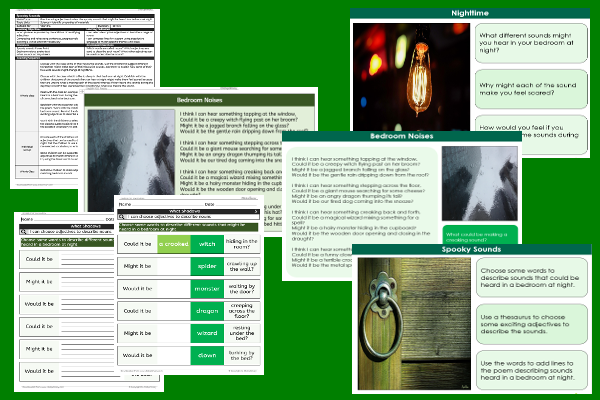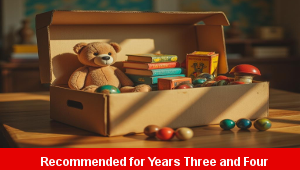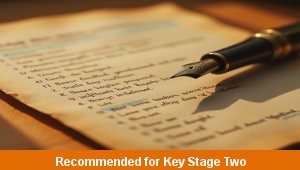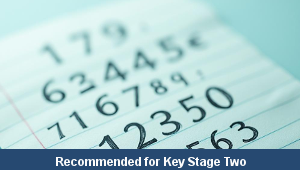Home > Key Stage Two > English > Extra > Spooky Night
Lesson Three – Spooky Sounds

This English teaching pack for Key Stage Two gets the children to practise selecting and using powerful adjectives to describe some of the spooky sounds that might be heard in a bedroom at night.
The class can explain and model how to use the selected adjectives in matching lines for a poem with a specific structure to describe events and experiences that might happen on a spooky Halloween night.
Download this teaching pack including a lesson plan, classroom activities and an interactive presentation to practise selecting and using powerful adjectives to describe some of the spooky sounds that might be heard in a bedroom at night
Activities in this teaching pack include a shared reading text to identify adjectives used to describe nouns in a poem about sounds heard in a bedroom at nighttime and differentiated worksheets to select and record adjectives that can be used to describe different nouns about sounds heard during the night.
The interactive presentation gets the children to explore how to use powerful adjectives to describe some of the spooky sounds that might be heard in a bedroom at night.
This lesson is part of an English scheme of work to get the children to select and use descriptive language in poetry to describe spooky sights and shadows that might be seen in a bedroom at night during Halloween. There are teaching activities for shared learning, differentiated worksheets to support independent learning and interactive presentations to introduce concepts and key skills.
-

Determinant Lists
Explain and model how to make lists of objects used and found in different locations to match the correct determinants of a and an
-

English SPAG Assessment
Assess abilities in composing sentences for fiction and non-fiction using the correct spellings, punctuation marks and grammar vocabulary phrases
-

Maths Arithmetic Assessment
Assess abilities in solving arithmetic number problems for addition, subtraction, multiplication and division when working with informal and formal written calculations
-

Environment
Identify and describe some of the special landscapes and locations that can be found in the world and reflect on how they can be protected and preserved for the future
